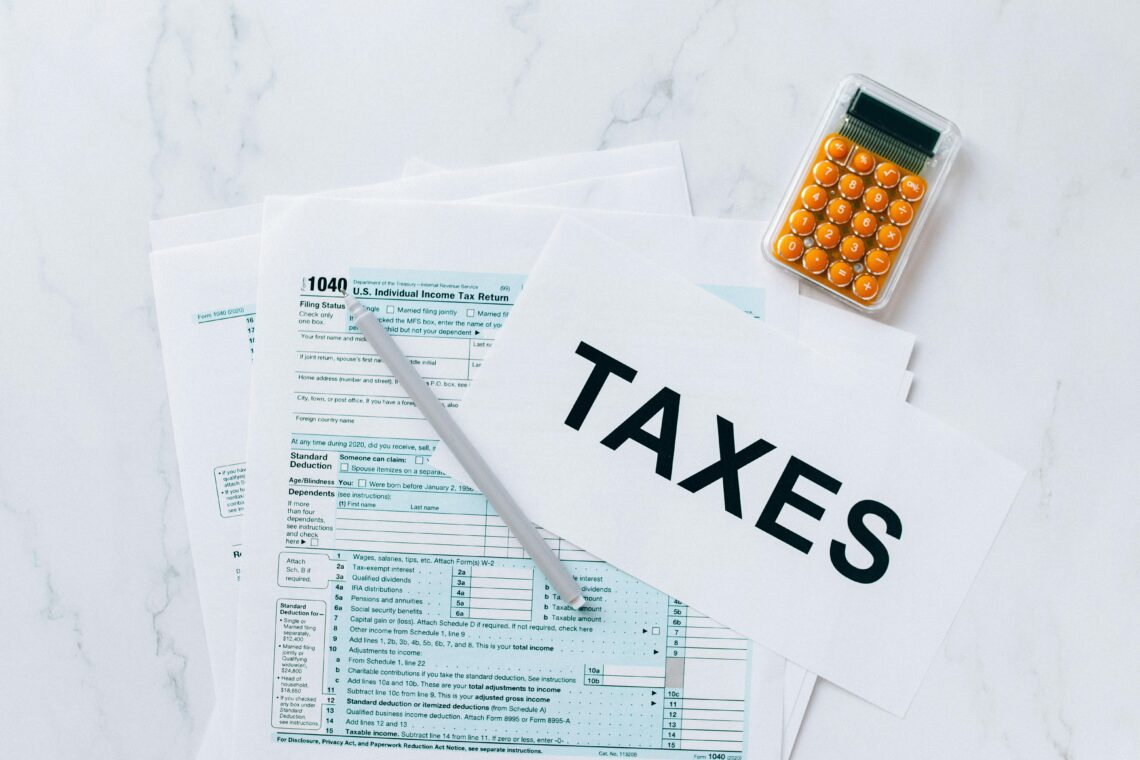
How to Apply for a National Insurance Number in the UK: Ultimate Guide for Students.
Table of Contents
Moving to the UK for studies is an exciting adventure filled with numerous opportunities. Amidst the excitement, there are several administrative tasks you need to complete, one of the most important being applying for a National Insurance Number (NINo). This article will guide you through the process, ensuring you have all the information you need to secure your NINo smoothly and efficiently.

Understanding the National Insurance Number
What is a National Insurance Number?
A National Insurance Number (NINo) is a unique personal identifier used by the UK government to track your contributions to the National Insurance (NI) system. This system funds state benefits like pensions, unemployment benefits, and the National Health Service (NHS). Your NINo ensures that the contributions you make are recorded against your name and are used to calculate your eligibility for these benefits.
Why Do You Need a National Insurance Number?
As a student in the UK, you might wonder why you need a NINo. The reasons are straightforward:
- Employment: If you plan to work part-time or undertake internships while studying, you will need a NINo to be employed legally. Employers use this number to deduct National Insurance contributions from your salary.
- Taxation: Your NINo helps HM Revenue and Customs (HMRC) keep track of your tax payments.
- Access to Benefits: In the future, if you decide to stay and work in the UK, your NINo will be essential for accessing various state benefits and services.
Eligibility for a National Insurance Number
Before diving into the application process, it’s crucial to confirm your eligibility:
- Age: You must be at least 16 years old.
- Residence: You need to be living in the UK.
- Work Status: You should be planning to work or currently working in the UK. If you’re not working but need the NINo for reasons such as applying for a student loan or opening a bank account, you must still demonstrate your intention to work.
Preparing for Your Application
Required Documents
Before you start your application, gather the necessary documents. These typically include:
- Proof of Identity: Valid passport, biometric residence permit, or national identity card (for EU citizens).
- Proof of Address: A recent utility bill, tenancy agreement, or bank statement showing your UK address.
- Proof of Employment or Study: A letter from your employer, employment contract, or confirmation of your student status from your university.
Additional Information
Be prepared to provide details such as:
- Personal Information: Full name, date of birth, and contact details.
- Residency History: Previous addresses (if any) and details of your arrival in the UK.
- Employment History: Information about your current or future employment.

The Application Process
Applying Online
The most convenient way to apply for a National Insurance Number is online. Follow these steps:
- Visit the Official Website: Go to the UK government’s official website for National Insurance applications.
- Create an Account: If you don’t already have a government gateway account, you’ll need to create one.
- Complete the Online Form: Fill in the application form with accurate and up-to-date information. Ensure all details match the documents you’ll be submitting.
- Upload Documents: Upload scanned copies of your proof of identity, address, and employment or study.
- Submit Your Application: Review all information to ensure it is correct, then submit your application.
Applying by Phone
If you encounter difficulties with the online application, you can apply by phone. Call the National Insurance number application line and provide the required details. They will guide you through the process and inform you of any additional steps or documentation needed.
In-Person Interview
In some cases, you might be asked to attend an in-person interview. This is more common if there are discrepancies in your application or if the authorities need further verification. If selected for an interview:
- Receive Notification: You will receive a letter with the date, time, and location of the interview.
- Prepare Documents: Bring the original versions of the documents you submitted online, along with any additional paperwork requested.
- Attend the Interview: Arrive on time and be prepared to answer questions about your application, identity, and employment status.
After the Application
Receiving Your National Insurance Number
Once your application is processed and approved, you will receive your NINo by post. This can take up to eight weeks. The letter you receive will confirm your NINo, which you should keep safe, as it will be used throughout your time in the UK.
Using Your National Insurance Number
As soon as you receive your NINo, inform your employer so they can update their payroll records. You will also need to provide your NINo when interacting with HMRC and when applying for any state benefits in the future.
Keeping Your National Insurance Number Safe
Your NINo is a critical piece of personal information. Do not share it unnecessarily, and always ensure it is stored securely. Be cautious of scams and only provide your NINo to trusted entities such as employers, HMRC, and government agencies.

Troubleshooting Common Issues
Delays in Receiving Your NINo
If you experience delays in receiving your NINo:
- Check Your Application Status: Contact the National Insurance helpline to inquire about the status of your application.
- Ensure Correct Contact Details: Confirm that the address and contact details provided in your application are correct.
Lost National Insurance Number
If you lose your NINo:
- Check Previous Documents: Your NINo might be listed on previous payslips, tax returns, or official letters.
- Request a Confirmation Letter: Contact HMRC to request a confirmation letter with your NINo.
Changes in Personal Information
If you need to update your personal information:
- Contact HMRC: Notify HMRC of any changes to your name, address, or employment status to keep your records up to date.
Special Considerations for International Students
Visa and Immigration Status
Your immigration status might affect your eligibility and the process of applying for a NINo. Ensure that your visa permits you to work in the UK. Student visas typically allow for part-time work during term time and full-time work during holidays.
Balancing Work and Studies
As an international student, balancing work and studies can be challenging. Make sure that any work you undertake does not interfere with your academic responsibilities. The UK has regulations on the number of hours international students can work, so adhere to these limits to avoid legal issues.
Accessing Support Services
Most universities in the UK offer support services for international students. These services can assist you with the NINo application process, provide guidance on employment rights, and offer general advice on living and studying in the UK. Utilize these resources to ensure a smooth transition and successful stay in the UK.
Other Frequently Asked Questions (FAQ)
What is the National Insurance number?
A National Insurance (NI) number is a unique identifier issued to individuals in the United Kingdom for social security and tax purposes. It consists of two letters, six digits, and a final letter, structured as AB123456C. This number is essential for working in the UK, as it ensures that National Insurance contributions and taxes are accurately recorded against the individual’s name. It is used by HM Revenue and Customs (HMRC) and the Department for Work and Pensions (DWP) to track employment, benefits, and pension records. Obtaining an NI number is mandatory for anyone looking to work or claim benefits in the UK.

How do I get my UK National Insurance number?
To obtain a UK National Insurance (NI) number, individuals must apply through the government’s official process. If you are a UK resident aged 16 or over and eligible to work or claim benefits, you can apply by calling the National Insurance number application line. You may need to attend an interview to confirm your identity and provide supporting documents such as a passport or residence permit. For those who have lost their NI number, it can be found on official documents like pay slips, tax returns, or by contacting HM Revenue and Customs (HMRC). Detailed instructions and contact information are available on the UK government website.
How can an international student get a National Insurance number in the UK?
International students in the UK can obtain a National Insurance (NI) number if they plan to work or claim benefits. To apply, students should call the National Insurance number application line to schedule an appointment. They may need to attend an interview to verify their identity and provide supporting documents, such as a passport, visa, and proof of address. The process ensures that NI contributions and taxes are properly recorded. Detailed information and guidance on the application process can be found on the UK government’s official website. It is important for international students to obtain an NI number to work legally in the UK.
Is National Insurance number only in the UK?
Yes, the National Insurance (NI) number is specific to the United Kingdom. It is a unique identifier assigned to individuals for the purpose of tracking National Insurance contributions and tax payments within the UK. The NI number is essential for employment, claiming benefits, and accessing public services in the UK. Other countries have their own systems for social security and tax identification, such as the Social Security Number (SSN) in the United States. The UK’s NI number is used exclusively within its jurisdiction and is crucial for maintaining accurate records of an individual’s work history and entitlement to state benefits and pensions.
What is UK National Insurance?
UK National Insurance is a system of contributions paid by workers and employers towards certain state benefits and services. Managed by HM Revenue and Customs (HMRC), it funds the National Health Service (NHS), state pensions, unemployment benefits, and other social security programs. Contributions are deducted from earnings and are mandatory for individuals aged 16 or over who are earning above a certain threshold. The National Insurance number, a unique identifier, ensures contributions are correctly recorded. The system helps provide financial support to individuals in retirement, unemployment, or illness, promoting social welfare and economic stability within the UK.
How long does it take to get NIN UK?
The process to receive a National Insurance Number (NIN) in the UK typically takes six to eight weeks from the date of application. After contacting the National Insurance number application line and providing necessary information, applicants may need to attend an interview to verify their identity. Required documents include proof of identity, such as a passport or residence permit, and evidence of residence in the UK. Once the application is processed and approved, the NI number is sent by post. It is advisable to apply early, especially if you plan to work or claim benefits in the UK.
How do I get a NI number outside the UK?
Obtaining a National Insurance (NI) number from outside the UK is not typically possible. NI numbers are issued only to individuals residing in the UK who are eligible to work or claim benefits. To apply, you must be physically present in the UK. Once there, you can contact the National Insurance number application line to begin the process, which may include an identity verification interview and providing supporting documents. If you are planning to move to the UK for work or study, it is recommended to apply for your NI number soon after your arrival to facilitate employment and access to benefits.
Do international students pay taxes UK?
Yes, international students in the UK are required to pay taxes on their income, just like UK residents. If an international student works while studying, they must pay Income Tax and National Insurance contributions if their earnings exceed the personal allowance threshold. The amount of tax depends on the student’s earnings and tax code. Students should ensure they are registered with HM Revenue and Customs (HMRC) and have a National Insurance number. Scholarships and bursaries may have specific tax rules, so it is important for students to understand their tax obligations and seek advice if needed to ensure compliance.
Do international students in the UK have insurance?
Yes, international students in the UK typically have access to insurance. Upon paying the Immigration Health Surcharge (IHS) as part of their visa application, they are entitled to use the National Health Service (NHS), providing them with healthcare coverage during their stay. This includes access to doctors, hospital treatment, and emergency services. Additionally, some universities offer health insurance plans, and students can also opt for private health insurance to cover services not included in the NHS. It is advisable for students to understand the extent of their coverage and consider additional insurance for comprehensive protection, including personal belongings and travel insurance.

Do all UK residents pay National Insurance?
Not all UK residents are required to pay National Insurance (NI). NI contributions are mandatory for individuals aged 16 and over who earn above a certain threshold from employment or self-employment. Those below the earnings threshold or with certain circumstances, such as full-time students or retirees under the state pension age, may be exempt. Contributions are deducted from wages by employers or paid directly by the self-employed. These payments fund state benefits, including pensions and the National Health Service (NHS). Even if not currently contributing, all residents should have a National Insurance number for future employment or benefit claims.
Can I get my National Insurance money back if I leave the UK?
If you leave the UK, you generally cannot get National Insurance (NI) contributions refunded. NI contributions fund state benefits and pensions, and are not refundable upon leaving the country. However, if you have paid into the UK National Insurance system, you may be eligible to receive benefits or a state pension in the future, depending on your total contributions and the length of time you have paid. For expatriates, the UK has agreements with some countries to transfer pension rights. It is advisable to consult with the National Insurance helpline or a financial advisor to understand how your contributions may impact your future benefits.
Is a National Insurance number proof to work in the UK?
A National Insurance (NI) number itself is not proof of eligibility to work in the UK, but it is essential for employment. It ensures that National Insurance contributions and taxes are correctly recorded. To work legally in the UK, you must also have the right to work status, which could be verified through a valid visa, residence permit, or employment authorization. Employers must conduct right-to-work checks and verify this status in addition to your NI number. The NI number is crucial for processing your pay and contributions but does not replace the need for proper work authorization.
Can foreigners get pension in the UK?
Foreigners can potentially receive a UK pension if they meet specific criteria. To qualify for a UK state pension, you generally need to have paid National Insurance contributions or received credits for a minimum number of qualifying years. This applies to individuals who have worked or lived in the UK. Additionally, expatriates who have moved abroad may still be eligible for a UK state pension, though their payments may be subject to adjustments based on their country of residence. For workplace pensions, eligibility depends on the scheme’s rules and the individual’s contributions. It is advisable to consult with the Pension Service or a financial advisor for personalized guidance.
What happens if I haven’t paid National Insurance?
If you haven’t paid National Insurance (NI) contributions, it can impact your entitlement to certain benefits and state pensions. Missing NI payments can result in reduced or no eligibility for state benefits such as unemployment support, maternity allowance, or state pension in retirement. For employed individuals, unpaid NI contributions could lead to enforcement actions, including penalties. If you’re self-employed or have gaps in your contributions, you might be able to make voluntary contributions to fill these gaps and maintain benefit entitlements. It’s important to address any unpaid contributions promptly by contacting HM Revenue and Customs (HMRC) for guidance and resolution options.
Can you work in the UK without NIN?
In the UK, you can technically start working without a National Insurance (NI) number, but you must obtain one as soon as possible. Employers are required to conduct right-to-work checks and ensure that you have the necessary legal authorization to work. While you can begin employment, you will need to provide your NI number to your employer to ensure that your National Insurance contributions and taxes are correctly processed. If you do not have an NI number, your employer will use an emergency tax code until your NI number is provided. It’s crucial to apply for your NI number promptly to avoid complications with payroll and tax deductions.
Can a non-UK citizen have a National Insurance number?
Yes, a non-UK citizen can obtain a National Insurance (NI) number if they are legally eligible to work or claim benefits in the UK. Non-UK citizens, including those on work visas, student visas with work rights, or those with settled or pre-settled status, can apply for an NI number. The application process involves providing proof of identity and residency, and may include an interview to verify details. The NI number is essential for recording National Insurance contributions and taxes. It is important to ensure that all eligibility criteria are met and to apply for the NI number as soon as possible.

Is my UK National Insurance number still valid?
Your UK National Insurance (NI) number remains valid for life once issued. It is a unique identifier used for tracking your National Insurance contributions and tax records. If you’ve been out of the UK for a period or have changed your personal details, your NI number remains unchanged. It is crucial to keep your personal information up-to-date with HM Revenue and Customs (HMRC). If you have concerns about the validity of your NI number or suspect any issues, contact HMRC directly for verification. Your NI number continues to be used for any future employment, benefits, or pension claims.
Can international students work in the UK without national insurance number?
International students in the UK can start working without a National Insurance (NI) number, but they must apply for one as soon as possible. Employers are required to ensure employees have the right to work in the UK and will need an NI number to process payroll and tax contributions accurately. Without an NI number, employers may use an emergency tax code, which could lead to incorrect tax deductions. Therefore, it is crucial for international students to apply for an NI number promptly to ensure compliance with tax regulations and to avoid any complications with their employment status.
Can you live in the UK without a national insurance number?
Yes, you can live in the UK without a National Insurance (NI) number, but having one is essential for working, claiming benefits, and accessing certain public services. While residency does not require an NI number, it is necessary for employment to ensure proper recording of tax and National Insurance contributions. Without an NI number, you may face challenges with accessing the full range of benefits and services. If you plan to work or claim benefits in the UK, you should apply for an NI number as soon as possible to facilitate these processes and ensure compliance with legal requirements.
What happens if you don’t pay National Insurance UK?
If you don’t pay National Insurance (NI) in the UK, it can impact your eligibility for certain state benefits and pensions. For employees, unpaid contributions can lead to enforcement actions, such as fines or legal proceedings. Self-employed individuals may face penalties and interest on missed payments. Failure to pay NI can also result in gaps in your contribution record, affecting your entitlement to the State Pension and other benefits like Jobseeker’s Allowance and Maternity Allowance. It’s important to ensure your NI contributions are up-to-date to maintain your benefit entitlements and avoid potential legal and financial consequences. Contact HM Revenue and Customs (HMRC) for assistance if you have missed payments.
How many years of National Insurance do you need in the UK?
In the UK, the number of years of National Insurance (NI) contributions needed depends on the benefit in question. For the full new State Pension, you typically need 35 qualifying years of NI contributions. To receive any State Pension, a minimum of 10 qualifying years is required. These contributions can be accrued through employment, self-employment, or credited contributions under specific circumstances like unemployment or caring for a family member. It’s important to regularly check your NI record to ensure you meet the necessary requirements for your desired benefits. You can do this through the HM Revenue and Customs (HMRC) website.
Can I get my pension back if I leave the UK?
If you leave the UK, you cannot get your National Insurance (NI) contributions refunded. However, you may still be entitled to receive a UK State Pension if you meet the qualifying criteria. The State Pension can be paid to you even if you live abroad, although the amount may be adjusted depending on your country of residence. Some private or workplace pensions can also be accessed from abroad, depending on the scheme’s rules. It’s advisable to contact the International Pension Centre or your pension provider to understand how your pension benefits will be affected by relocating and to ensure you receive your entitlements.
Do you pay UK tax if you are a non-resident?
Non-residents in the UK are subject to UK tax on income earned within the country. This includes earnings from employment, rental income, and pensions. Non-residents typically do not pay UK tax on foreign income, except in certain circumstances such as operating a business branch in the UK. Tax obligations are governed by double taxation agreements between the UK and other countries, which aim to prevent being taxed twice on the same income. It’s important to understand your residency status and consult with HM Revenue and Customs (HMRC) or a tax advisor to ensure compliance with UK tax laws and optimize your tax position.
How much is National Insurance in the UK?
| Category | Earnings/Profits | Rate |
|---|---|---|
| Employees (Class 1) | £242 – £967 per week | 12% |
| Above £967 per week | 2% | |
| Employers | Above £175 per week | 13.8% |
| Self-employed (Class 2) | Profits above £12,570 per year | £3.45 per week |
| Self-employed (Class 4) | £12,570 – £50,270 per year | 9% |
| Above £50,270 per year | 2% |
National Insurance (NI) contributions in the UK vary based on employment status and earnings. For employees, Class 1 NI contributions are deducted from wages at 12% on earnings between £242 and £967 per week, and 2% on earnings above £967 per week (2023/24 rates). Employers also contribute 13.8% on employee earnings above £175 per week. Self-employed individuals pay Class 2 contributions at a flat rate of £3.45 per week if profits exceed £12,570 annually, and Class 4 contributions at 9% on annual profits between £12,570 and £50,270, and 2% on profits above £50,270. Rates and thresholds are subject to change, so it is advisable to check the latest figures from HM Revenue and Customs (HMRC).
What is the minimum pension in the UK?
The minimum UK State Pension depends on your National Insurance (NI) contributions. For those who reached State Pension age after April 6, 2016, the full new State Pension is £203.85 per week (2023/24 rates). However, you need 35 qualifying years of NI contributions for the full amount. The minimum State Pension requires at least 10 qualifying years, and the amount received will be proportionate to the number of years contributed. For those who retired before April 6, 2016, different rates and rules apply under the basic State Pension. For precise amounts and personalized information, consult the UK government’s pension service.
How many years of National Insurance for a full pension?
To qualify for the full new State Pension in the UK, you generally need 35 qualifying years of National Insurance (NI) contributions or credits. This full amount is £203.85 per week for the 2023/24 tax year. If you have between 10 and 34 qualifying years, you will receive a proportionate amount of the State Pension based on your contribution record. For those who reached State Pension age before April 6, 2016, different rules apply under the basic State Pension system. To check your NI record and ensure you meet the requirements, consult the HM Revenue and Customs (HMRC) or the UK Pension Service.
Does the UK National Insurance number expire?
No, a UK National Insurance (NI) number does not expire. Once issued, it remains valid for life and is used to track your National Insurance contributions and tax records. The NI number is a unique identifier assigned to individuals for their entire working life and beyond, regardless of any changes in employment status, address, or residence. Even if you move abroad or stop working, your NI number remains unchanged. It is important to keep your NI number secure and continue to use it for any future employment or benefit claims. For any concerns or updates, contact HM Revenue and Customs (HMRC).
How long do you have to work in the UK to get a pension?
To qualify for the UK State Pension, you generally need a minimum of 10 qualifying years of National Insurance (NI) contributions or credits. For the full new State Pension, you typically need 35 qualifying years. These years can be accumulated through employment, self-employment, or credits received in specific situations such as unemployment or caregiving. If you have fewer than 35 years but at least 10, you will receive a proportionate amount of the State Pension. It’s essential to regularly check your NI record through the HM Revenue and Customs (HMRC) website to ensure you meet the requirements for your pension entitlements.
What is the National Minimum Wage for International Students?
| Age Group | National Minimum Wage (NMW) Rates (April 2024) |
|---|---|
| Under 18 | £6.40 per hour |
| 18-20 years old | £8.60 per hour |
| 23 years and over | £11.44 per hour |
| Apprentice | £6.40 per hour |
International students in the UK are entitled to these NMW rates if employed. They must also adhere to visa restrictions on work hours, typically limited to 20 hours per week during term time and full-time during holidays. Compliance with both wage regulations and visa conditions is essential to avoid legal issues and maintain visa status. These rates change on the 1st of April every year, consult the government website for an up-to-date rate.
Does a student visa make you a resident in the UK?
A student visa does not automatically make an individual a resident in the UK for immigration purposes. Student visa holders are considered temporary migrants with specific rights and restrictions tied to their visa status. They can reside in the UK for the duration of their course and may work part-time during term and full-time during holidays. However, for tax purposes, student visa holders may be considered residents depending on their length of stay and individual circumstances. It is important to understand the distinction between immigration and tax residency to ensure compliance with all relevant UK laws and regulations.

How much allowance do international students get in the UK?
International students in the UK do not receive a specific allowance from the government. However, they must demonstrate financial capability to support themselves during their studies as part of the visa application process. This includes showing funds to cover tuition fees and living expenses, typically estimated at £1,334 per month for living in London and £1,023 per month for other parts of the UK. Students may work part-time up to 20 hours per week during term time and full-time during holidays to supplement their income. Scholarships, grants, and bursaries are also available from various institutions to assist with financial needs.
Do international students get free healthcare in the UK?
Yes, International students in the UK have access to the National Health Service (NHS) but it is not entirely free. To use NHS services, students must pay the Immigration Health Surcharge (IHS) as part of their visa application. The IHS costs £470 per year for students and grants access to a range of healthcare services including doctor visits, hospital treatment, and mental health services. Some additional costs, such as prescription charges and dental care, may apply. Despite the IHS fee, this system ensures that international students can receive comprehensive healthcare during their stay in the UK.
What benefits can international students claim in the UK?
International students in the UK are generally not eligible for public benefits. This includes welfare programs like Universal Credit, housing benefits, and other government assistance designed for UK residents. Students must demonstrate financial self-sufficiency as part of their visa requirements. However, they may access certain services and discounts, such as healthcare through the NHS (with the Immigration Health Surcharge), student discounts on travel and retail, and institutional support services like counseling and career advice. Scholarships, bursaries, and grants offered by universities and external organizations can provide financial assistance specifically tailored for international students.
Can an international student in the UK travel to another country?
International students in the UK can travel to other countries, but they must ensure their travel documents and visas are in order. Before traveling, students should check the visa requirements of their destination country and ensure they have a valid UK student visa for re-entry. It’s essential to carry all necessary documents, such as a valid passport, Biometric Residence Permit (BRP), and proof of student status. Additionally, students should be aware of any travel restrictions or requirements due to health or security advisories. Proper planning and documentation will ensure smooth travel and re-entry into the UK.
How many years of National Insurance do you need in the UK?
In the UK, to qualify for the State Pension, you typically need at least 10 years of National Insurance (NI) contributions. These do not have to be consecutive years. To receive the full new State Pension, 35 years of contributions are required. NI contributions are made through employment, self-employment, or voluntary contributions. The amount received in the State Pension depends on the number of qualifying years. Understanding and keeping track of NI contributions is crucial for planning retirement and ensuring eligibility for full pension benefits. For detailed information, individuals should consult the UK government’s official guidelines on NI contributions and State Pension eligibility.
Can I get my pension back if I leave the UK?
If you leave the UK, you cannot get a refund of your National Insurance (NI) contributions. However, you can still claim your UK State Pension from abroad, provided you meet the eligibility criteria. To qualify, you generally need at least 10 years of NI contributions. The pension can be paid into a UK bank account or an overseas account, but the amount received may be affected by the country you move to due to exchange rates and potential tax implications. It is important to notify the UK pension authorities of any changes in your address to ensure seamless pension payments.
How long do you have to work in the UK to get a pension?
To qualify for the UK State Pension, you need a minimum of 10 years of National Insurance (NI) contributions or credits. These years do not have to be consecutive. To receive the full new State Pension, 35 qualifying years of contributions are required. Contributions can be made through employment, self-employment, or voluntary contributions. The amount of State Pension you receive will depend on the number of qualifying years. Understanding these requirements and keeping track of your NI contributions is crucial for effective retirement planning and ensuring you receive the appropriate pension benefits upon retirement.
How much is 1-hour salary in the UK for international students?
£11.44, International students in the UK are entitled to the National Minimum Wage (NMW) if they are employed. This rate applies regardless of student status, ensuring fair compensation for all workers. International students must also adhere to visa restrictions on work hours, typically 20 hours per week during term time and full-time during holidays. Compliance with both wage regulations and visa conditions is essential to avoid legal issues and maintain visa status.
How can international students make extra money in the UK?
International students in the UK can make extra money through part-time work, internships etc. They are allowed to work up to 20 hours per week during term time and full-time during holidays, provided their visa permits it. On-campus jobs, such as library assistants or student ambassadors, offer flexible hours. Additionally, participating in paid research studies, surveys, and focus groups can provide supplementary income. It’s essential to balance work with academic commitments and ensure compliance with visa regulations to maintain legal status.
Can I work for 40 hours in the UK as an international student?
International students in the UK are generally not allowed to work for 40 hours per week during term time. The standard limit is 20 hours per week for most student visas. However, students can work full-time during official university holidays and breaks. It is crucial to adhere to these regulations to avoid breaching visa conditions, which could jeopardize their legal status in the UK. Violations can lead to severe consequences, including visa revocation. Students should always check the specific work restrictions stated on their visa and consult their university’s international student office for guidance.
What happens if I work over 20 hours on a student visa in the UK?
Working over 20 hours per week during term time on a student visa in the UK is a breach of visa conditions. This violation can lead to serious consequences, including visa revocation, which may result in deportation and a ban on re-entering the UK. Additionally, it can affect future visa applications and academic standing. Employers who allow or require students to exceed these hours may also face legal penalties. It is crucial for international students to strictly adhere to their visa’s work restrictions and consult their university’s international student office for any clarifications regarding employment regulations.
Conclusion
Applying for a National Insurance Number is a crucial step for any student planning to work and study in the UK. By understanding the requirements, preparing the necessary documents, and following the application process carefully, you can secure your NINo with minimal hassle. Remember to keep your NINo safe and use it responsibly throughout your time in the UK.
Navigating this process might seem daunting at first, but with the right information and preparation, you can complete your application successfully. Should you face any challenges, don’t hesitate to seek help from university support services or contact the relevant government agencies for assistance. With your NINo in hand, you’ll be well on your way to making the most of your time in the UK, both academically and professionally.
Post Disclaimer
The information provided on this blog is for general informational purposes only. It is not intended as legal advice or immigration guidance. We strive to keep the information accurate and up-to-date, but we cannot guarantee that all information provided is error-free or current. Immigration laws and procedures can change frequently and vary by jurisdiction.
It is recommended to consult with a qualified immigration lawyer or professional for advice specific to your situation.



